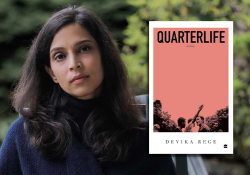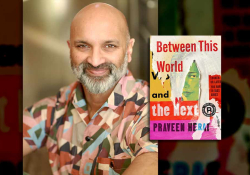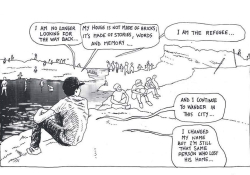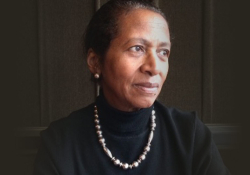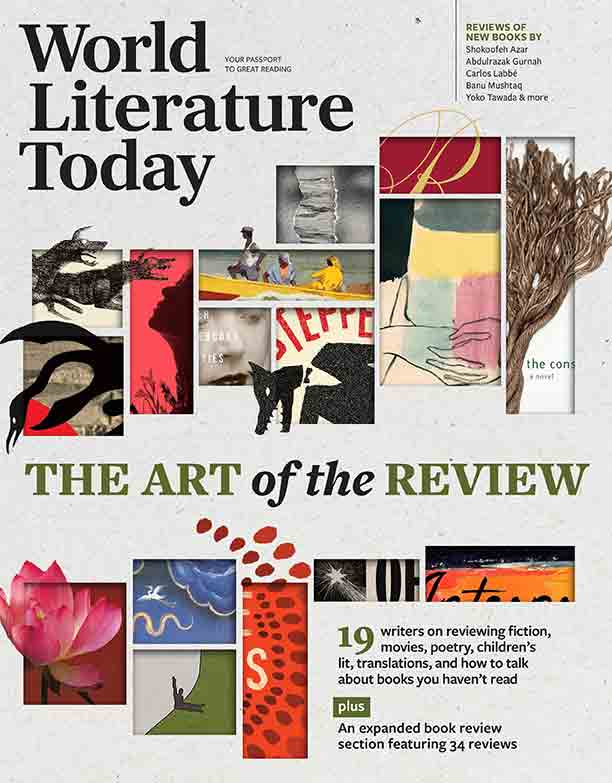“Where the Reader Can Be Warned”: 7 Questions for George Gömöri
 Q
Q
First, thank you for your many contributions to WLT. You have helped shape our pages for sixty years, particularly concerning Hungarian literature. What makes a good review?
A
Perhaps a summary of the book’s content, focusing on its merits and/or pointing out its most important shortcomings.
Q
How has the culture of book reviewing changed since you began reviewing?
A
Reviews have become less critical, more based on individual taste. As WLT publishes fewer reviews than its predecessor, Books Abroad, the mere fact that a review is printed about a book at all is an indication of its importance.
Q
In a 1959 article in Harper’s titled “The Decline of Book Reviewing,” Elizabeth Hardwick bemoaned the state of reviewing at that time, saying, “Sweet, bland commendations fall everywhere upon the scene; a universal, if somewhat lobotomized accommodation reigns.” I’d like to think critical reviewing has since proven more robust than that. What do you think? Is there ample room for criticism in reviews?
A
I don’t think the word “robust” is the right one here. Fashionable authors get reviewed more often and, in some cases, more leniently than others. Most fashionable authors are quickly translated into English, but the reviewer often fails to check the translation against the original, so he or she does not notice the errors. I could give a number of examples of certain “postmodern” Hungarian authors translated into English.
Q
How much influence do book reviews have on what you choose to read? Have you ever abandoned a book you intended to read based on a review? Ever decided to read a book based on a review?
A
Yes, this has happened, especially in the case of nonfiction, where the reader can be warned about the author’s flights of imagination, weak hypotheses, or deliberate distortion of facts. Fiction is freer in this respect.
Q
I think of book reviewing as an art, related to essay writing but still distinct. When done well, I enjoy reading the review regardless of my interest in the book. Are there writers you think write reviews particularly well?
A
I am afraid I read book reviews for information, not to enjoy the reviewers’ wit or superb style.
Q
As a poet, your work has been the subject of reviews. Do you read reviews of your work? How do you find yourself reacting to them?
A
I do read reviews of my books of poetry, but I wouldn’t say I am much influenced by them. I dislike reviews based on preconceptions (i.e., what modern poetry should be like) or on political bias (I do write satirical poems on certain self-congratulatory but stupid politicians). On the other hand, sometimes a friendly or encouraging review can help your work.
Q
Has the experience of being reviewed impacted you as a reviewer?
A
Only very rarely am I annoyed by a review. Though it has happened that somebody had praised my work but, being a compatriot, his English was far from perfect—sometimes praise, when badly written, can be damaging.
 Born in Hungary, George Gömöri is a retired lecturer at the University of Cambridge and has been a member of the editorial board of Books Abroad/WLT since the late 1960s. He is a prizewinning poet and translator, now living in London. His publications include a book of correspondence with Jerzy Giedroyc, editor of the émigré journal Kultura (2018), and the autobiography Soknyelvű életem (Savaria, 2024).
Born in Hungary, George Gömöri is a retired lecturer at the University of Cambridge and has been a member of the editorial board of Books Abroad/WLT since the late 1960s. He is a prizewinning poet and translator, now living in London. His publications include a book of correspondence with Jerzy Giedroyc, editor of the émigré journal Kultura (2018), and the autobiography Soknyelvű életem (Savaria, 2024).






